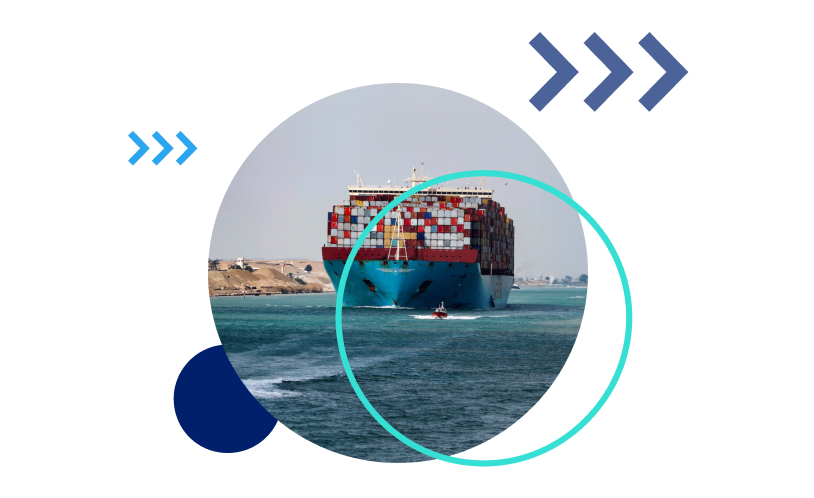Looking to move beyond arbitrage or local distributors and source from overseas? Good choice. Many sellers who make the switch greatly improve their profit margins and find products that sell like hotcakes.
But watch out. There are several types of restrictions on bringing products into the country. You don’t want to sign a deal with a supplier, and later discover that you have “hotcakes” you can’t sell.
Import Restrictions
US Customs are also working on behalf other government agencies concerned with threats to national health, safety, and security. There’s a virtual alphabet of them, like the FDA, USDA, EPA, FCC, and the CPSC. So your hotcakes might need to be correctly labeled to FDA requirements (for instance, they claim to cure or heal), be liable to heavy duties, require a special permit, or even be outright banned.
Anti-dumping duties protect local businesses being unfairly hit by imports priced below fair market value. Many importers find their very cheap new hotcake ain’t so hot after paying some hefty customs duties. An example that made the news, was with colored pencils. This problem is easily solved. Use an online duties estimator to calculate how much duty you will be charged.
Ok, it makes sense that flammable (except for the asbestos bits) mouth-size baby toys get stopped, but did you know that many regularly imported products, like cosmetics, or anything with metals (that includes aluminum), also have import restrictions.
How can you tell? A simple Google search like “can I import [your product]?” is a good place to start. Check out all materials involved in the production. For instance, those leather-trimmed sunglass cases could require wildlife approval.
Even if the product itself has no restrictions, the packaging might cause problems. Customs will hold back shipments from many countries if the pallets are not stamped as fumigated. At a minimum, this will cost you the fumigation costs. Best to ask a forwarder for advice when discussing packaging with your supplier.
Carrier Restrictions
But if you haven’t first checked out air and ocean cargo carrier restrictions, your product won’t even get as far as Customs. Carrier restrictions are there to avoid (often lethal) accidents happening during transit.
Hazardous materials (HAZMAT) may be radioactive, flammable, toxic or explosive, but don’t be fooled. That covers some seemingly innocuous items like camping gear, cosmetics, perfumes and frozen foods. Understandably, there are more restrictions on airlines than ships.
The United Nations, governments, carrier governing bodies, and individual airlines and container ship companies all take hazardous materials seriously. So should you. Check out the detailed procedure involved on the How Do I Ship Hazardous Materials? section.
Intellectual Property Restrictions
This is the last type of restriction to be aware of. The Department of Commerce enforces the government regulations and international patents that protect companies from being ripped off. Copyright and trademark infringement generally applies to cheap product knock-offs, but also more subtly applies to product packaging.
It’s also difficult to work out if your product is breaching a patent. Sometimes importers only find out at Amazon’s buy box. So, if your product is similar to a big brand, check that company’s website for patent numbers, then google search on that number to find what the patent covers. If at all unsure, get legal advice, perhaps starting first with this webinar.
Reach For A Pen And Your Wallet
You’ve done your checks and are confident that Customs, the carrier and the Department of Commerce (who investigate potential IP breeches) are all on side. You now need to prove it to them. Reach for a pen. Here’s what government agencies, carrier and forwarders will be looking out for on the shipment’s paperwork.
- A detailed description of the goods on the freight quote, commercial invoice, bill of lading, shipment packing list, shipper’s letter of instruction, and any other relevant shipping document.
The shipper’s letter of instruction must also specify how the goods need to be handled, and include emergency contact information. - Potentially hazardous goods may also require a special declaration called a Material Data Safety Sheet. It is usually provided by the exporter via the manufacturer. If required, your forwarder will need this document soon after the booking.
- If you’re looking for a little love after all of these dos and don’t’s, you’re in luck. Not only does your getting the paperwork right help your shipment, it also helps all other shipments. Customs uses this information to identify the higher risk shipments that might warrant inspection. That prevents bottlenecks, speeding up the clearance process for all shipments.
After the paperwork, reach for your wallet. Hazardous goods almost always cost more in freight costs.
Also, restricted products may incur more costs than standard freight charges, particularly at Customs. Besides duty, a cargo inspection can lead to expensive penalties and charges. Then there are the worse case scenarios – stranded cargo that carriers won’t carry, or the cost of re-exporting any products that fails customs clearance.
But don’t let these restrictions, restrict you from sourcing overseas. Follow the advice, consult with a forwarder, and you will steer well clear of trouble. Your hotcakes will soon be on the shelf and selling like, well, hotcakes.
Good luck!



